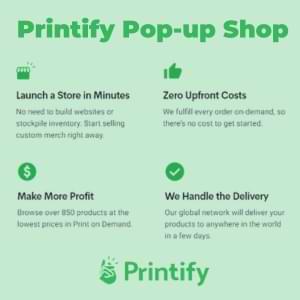Are you a small business owner looking for ways to expand your reach and grow your customer base? Marketing is an essential part of any successful business, but it can be challenging when resources are limited. Don’t despair! This article will provide some creative marketing ideas that won’t break the bank. From leveraging social media platforms to using clever tactics like referral programs, we’ll explore tried-and-true strategies that have helped many small businesses succeed. Read on to learn more about how effective marketing doesn’t have to cost a fortune.
The world of digital marketing has opened up countless opportunities for small businesses. It’s easier than ever before for entrepreneurs to reach customers around the globe with just a few clicks of a mouse or taps on a smartphone screen. Social media outlets such as Facebook, Twitter, Instagram, Pinterest – even TikTok – offer free tools and features you can use to build relationships with prospective customers and create brand awareness. But there’s much more to effective marketing than just posting content online; let’s take a look at other low-cost ways you can make an impact in the marketplace without breaking the bank.
Word-of-mouth referrals are one of the most powerful forms of advertising available today because they come from trusted sources who’ve had positive experiences with your products or services. Setting up an incentive program where existing customers receive reward points each time they refer someone new is an excellent way to encourage them to spread the word about your company while also giving yourself additional exposure at no extra charge. And when those newcomers become loyal patrons themselves, you know your strategy is working well!
Overview Of Small Business Marketing Ideas
Marketing is an important part of any business, big or small. There are plenty of options for a small business to consider when it comes to marketing. It’s essential that the strategy chosen makes use of the resources available and sets realistic goals for success.
One option is word-of-mouth promotion via family, friends, and existing customers. This type of grassroots campaign can be very effective in raising awareness about a product or service without costing much money. Additionally, offering incentives like discounts or freebies encourages people to spread the word even further.
Digital marketing is another avenue worth exploring. Social media platforms give businesses the ability to reach out directly to potential customers with targeted ads and content tailored specifically to their interests. Companies can also create campaigns using email marketing software, search engine optimization (SEO), and website design services to maximize visibility online. With these tools, companies can connect with more leads than ever before while still keeping costs low compared to traditional advertising methods.
By taking advantage of all the options available, businesses can establish powerful marketing strategies that will help them stand out from competitors and achieve lasting success in today’s competitive marketplace.
Networking Strategies
Stepping out of the box and into the world of networking is an important part of marketing for any small business. Networking can be a great way to increase brand recognition and make connections that could lead to success down the line. Here are some strategies to keep in mind when building your network:
First, focus on connecting with people who have similar interests or passions. Whether it’s joining a local group such as a chamber of commerce or industry association, participating in forums or online discussions, or attending events hosted by like-minded professionals, you’ll find yourself meeting lots of new potential contacts. You can also use social media platforms like Twitter and LinkedIn to connect with those outside your immediate circle.
Second, don’t forget about traditional methods of advertising such as print ads and radio spots. These old-school techniques still work effectively if you’re looking to reach a wide audience quickly. Additionally, consider using digital advertising campaigns like search engine optimization (SEO) and pay-per-click (PPC) ads to boost visibility online. Finally, get creative when thinking about ways to market your product or service – think beyond basic promotional tactics like giving away t-shirts at street fairs and create unique experiences that will leave an impression on customers long after they’ve left the event!
By following these tips, you can start growing your small business’s presence within the marketplace through effective networking strategies. With enough dedication and creativity, soon you’ll be seeing results from all your hard work!

Social Media Marketing
Social media platforms provide a great way for small businesses to reach potential customers. Platforms like Facebook, Twitter, Instagram and LinkedIn are especially effective because they allow users to share content with friends or followers. This type of word-of-mouth marketing is extremely powerful and can be very cost-effective for small business owners. Additionally, social media campaigns typically have higher engagement rates than traditional advertising methods such as television or newspaper ads.
When leveraging these platforms to market your business it’s important to create compelling content that will capture the attention of viewers and encourage them to take action. Content should also be tailored to each platform in order to maximize its effectiveness and ensure maximum visibility across all channels. For example, visuals tend to perform better on Instagram while videos often do well on YouTube. Posting regularly is essential too – not only does this keep your followers engaged but it also helps build brand awareness over time.
Finally, creating relationships with other influencers who have similar target audiences can help you get more exposure for your business at minimal cost. By collaborating with influencers and having them promote your products or services, you can gain access to new markets and potentially increase sales significantly.
Referral Programs
Referral programs are an excellent way for small businesses to get the word out about their products or services. It’s a great tool that can be used to generate leads, increase customer loyalty and gain new customers. Here are three ways you can implement referral programs:
- Offer discounts to existing customers who refer friends or family members
- Give rewards in exchange for referrals such as free store credit or gift cards
- Host contests with prizes like exclusive product launches
These methods will incentivize your current customers to spread the word about your business and attract more people. Additionally, if you offer unique rewards and experiences, it’ll make your program stand out from others. As well, by tracking how successful each campaign is, you’ll know what incentives work best for getting customers engaged with your brand. Implementing a referral program is one of the most effective ways to market your small business – so don’t hesitate!
Public Relations
Public relations tactics are a great way for small businesses to generate buzz around their products and services. A powerful PR campaign can quickly spread the word about what you have to offer and attract new customers. To get started, here are some ideas that will help set your business apart from the competition:
First, create an attention-grabbing press release with compelling stories that stand out from the crowd. Try using metaphors or analogies to paint a vivid picture of how your product or service solves people’s problems. At the same time, make sure it is concise and easily digestible so readers won’t be overwhelmed by too much information.
Second, cultivate relationships within your local community. Get involved in events, charities, and other activities that allow you to mingle with potential customers while increasing brand awareness at the same time. This type of grassroots marketing opens up opportunities for media coverage as well as word-of-mouth referrals – both invaluable when promoting a small business.
Finally, use social media wisely. Make sure your content is engaging and relevant to your target audience while also staying true to your company’s message and values. Post regularly but don’t overdo it; you want followers to look forward to hearing from you instead of feeling inundated by notifications every day! With these tips in mind, you’ll be well on your way towards creating a successful PR campaign for your small business.
Advertising Channels
Moving on from public relations tactics, exploring advertising channels is the next step for small businesses looking to establish their presence. Advertising can be done in various ways; it all depends on what type of messages a business wants to send and where they want them sent. There are many options when it comes to choosing an advertising channel, such as television commercials, radio ads, print advertisements, digital media campaigns and more.
For smaller companies with limited budgets, TV or radio ads may not be feasible due to cost constraints. However there are still several effective alternatives that can help get the message out without breaking the bank. Digital media strategies offer tremendous reach at very low cost; these include search engine optimization (SEO), social media marketing and content creation through blogs or vlogs. All three approaches involve creating interesting content that will capture people’s attention and draw potential customers in.
Print advertisements remain one of the most reliable forms of advertisement even today, despite advances in technology. It has been proven time and again that placing an ad in local newspapers or magazines can yield great results for small businesses-particularly if targeting a specific audience within a particular geographic area. Additionally, flyers distributed door-to-door or placed around town could also be beneficial for local shops looking for new customers.
With so many choices available, selecting the right mix of advertising channels is essential for small businesses who want maximum exposure with minimum effort and cost. Choosing wisely requires research into each option’s effectiveness against a desired outcome as well as considering budget restrictions while developing creative messaging tailored towards target audiences. Businesses should make sure they select only those platforms which best fit their goals in order to achieve success with their marketing efforts.
Website Design & Optimization
Having an impressive website is absolutely essential for any small business today. It’s practically the equivalent of having a storefront in the modern world, and it can make or break your success. When done right, web design can be like a magical key that unlocks immense potential for growth, allowing you to reach far more customers than ever before. With this in mind, here are some crucial tips to help maximize your online presence.
First, invest time into making sure your site looks professional and visually appealing. An aesthetically-pleasing layout with intuitive navigation will draw people in and keep them engaged on your page longer. Additionally, make sure all text has been edited properly – typos and grammar mistakes reflect poorly on your business and could cost you, valuable clients, down the line.
Finally, work towards optimizing your website for search engines by adding keywords throughout content strategically; perform keyword research to determine top terms related to your industry first. Furthermore, ensure that pages load quickly since visitors typically won’t wait around if loading times take too long – use tools such as Google PageSpeed Insights to test performance speed periodically. Taking these steps will set you up well for long-term success!
Email Marketing
Email campaigns are one of the most effective forms of marketing for small businesses. They allow you to target specific audiences, send tailored messages and track results in real-time. To get started with an email campaign, it’s important to decide on a goal. You can focus on building brand awareness, driving website traffic or increasing sales.
Once you’ve set your goal, create personalized emails that reflect your brand’s identity and value proposition. Be sure to include engaging visuals and keep subject lines short but impactful when sending to your email list. Automation tools such as triggered emails can also help take some of the manual labor out of sending frequent campaigns. This makes it easier to ensure messages are being sent at optimal times when customers are more likely to be engaged with them.
Tracking metrics is essential for gauging how successful your campaigns have been. Look at open rates, click-through rates, and unsubscribe numbers to determine what’s working well and where improvements can be made. With careful analysis of these key performance indicators (KPIs), you’ll be able to maximize returns from your email campaigns over time.
You should also consider creating and sending — on a regular basis — an email newsletter targeted at the local business owner on your list.
Online Communities & Forums
Online communities and forums are like small villages bustling with activity, filled with people of all kinds. They can be the perfect place to promote your business and build relationships with potential customers and partners. Here’s how you can make the most of online communities & forums:
First off, join the conversation in relevant forums and become an active member. Interact regularly, post helpful content, and answer questions posed by other members. This will establish your presence as an authority in your field and help create trust among forum users. Plus, it’ll give you valuable insights into what customers want from businesses like yours.
Next, take advantage of user-generated content platforms such as Reddit or Quora to get more exposure for your brand. You can do this by creating polls or surveys that allow users to share their opinions about products or services related to your industry. By doing so, you’ll gain valuable feedback which can help inform your marketing strategies going forward.
Finally, target influencers on social media platforms who have large followings within specific niches related to your business. Connecting with these influential figures is a great way to increase awareness of your brand while also building credibility amongst prospective buyers.
Local Events & Promotions
Local events and promotions are an excellent way to promote and grow your business. Participating in local festivals, fairs, or trade shows can be great for getting the word out about your products or services. You can use these opportunities to introduce potential customers to your brand by handing out promotional materials such as flyers, brochures, and samples that include information on what you offer. And don’t forget to have plenty of business cards! A business card is often overlooked as a marketing tactic, but it shouldn’t be a forgotten piece of your marketing plan.
Additionally, hosting special events at your place of business can attract new customers and build customer loyalty. This could involve anything from offering discounts on certain days or running competitions with prizes — maybe even offer a giveaway of some type. It’s also important to get involved in social media so that you can reach more people online who may not have heard about you otherwise. Posting regularly across different platforms will help spread awareness of your company and keep existing followers engaged. Furthermore, partnering with other businesses in the area is an effective way of increasing visibility—you’ll both benefit from each other’s networks!
Collaborations & Partnerships
Moving on from local events and promotions, collaborations and partnerships are another great way for a small business to achieve successful marketing. This involves teaming up with other businesses or organizations that have the same target market as yours, in order to mutually benefit each other. Working together allows both parties to share resources and promote one another’s products and services.
For example, if you own an apparel store, you could partner up with a shoe company who shares your customer base. You can then cross-promote their shoes through your store by displaying them in your shop window or offering discounts when customers purchase both clothes and shoes at once. The shoe company will likely do the same for your clothing items too. This type of collaboration is beneficial because it helps increase visibility for both companies, while bringing in new customers who may not have been exposed to either brand before.
Collaborations don’t always need to be between two different businesses either; they can also involve working with influencers or content creators whose followers match your desired demographic. They can help spread awareness about your product by creating sponsored posts featuring it across social media platforms like Instagram or YouTube. Doing so will give you access to their large following which would otherwise be difficult to reach without spending money on advertising campaigns.
Forming these types of relationships takes time but if done right, they can result in significant growth for any small business’s presence in the marketplace – all while saving costs compared to traditional methods of promotion such as television commercials or print ads . Additionally, influencer relationships can create a more authentic connection between the brand and potential customers, helping to build trust and loyalty.
Content Marketing Strategies
In a world of ever-increasing competition, it is essential for small businesses to stand out and make themselves seen. Content marketing can be an effective tool in helping achieve that goal. By providing relevant information and engaging with customers through content, businesses can attract new clients while maintaining relationships with existing ones.
Content Marketing Strategies include creating blogs, articles or videos that focus on topics relevant to the business’s industry. This enables businesses to draw attention to their products and services without appearing too salesy. Additionally, by regularly posting useful content on social media sites like Twitter and Facebook, companies can gain more followers and increase brand visibility. Through thoughtfully crafted posts, they can also foster meaningful discussions about their brand with potential customers.
Moreover, email campaigns are another way to reach target markets with tailored messages that help build trust between company and customer. When done correctly, this strategy allows brands to stay top of mind when consumers search for solutions related to their product or service offerings. Ultimately, these strategies help small businesses maximize exposure while reaching out to current and prospective customers alike in an organic manner.
Mobile Technology Utilization
Moreover, there is also a great potential to reach customers via mobile technology. People are constantly connected to their phones and tablets, so utilizing this platform can be extremely beneficial for small businesses. Mobile technology has become an integral part of the marketing process, providing brands with unprecedented access to their target audiences.
The first step in utilizing mobile technology for business purposes is to create a website that is optimized for mobile devices. This means making sure the site looks good on all types of screens and loads quickly even on slow networks. Additionally, creating an app specifically designed for your company’s products or services can help draw attention from smartphone users who may not otherwise find you online. Apps allow companies to keep customers engaged with push notifications, loyalty programs, coupons, and other incentives aimed at increasing sales.
Finally, social media should also be utilized as it allows businesses to connect directly with their consumers and build relationships by responding to comments or questions quickly and engagingly. Social media platforms such as Facebook and Instagram provide perfect opportunities for companies to showcase new products, announce promotions, share updates about upcoming events, and more – all while encouraging customer engagement through creative content like polls and surveys.
Measuring Success & Analytics
Measuring success and analytics are essential for any small business. To track progress, establish benchmarks, and analyze performance, data is key. First, decide which metrics you will use to measure success; some common ones include website visits, sales revenue, customer acquisition cost (CAC), and customer lifetime value (CLV). Once you have identified the most important metrics, create a system that allows you to collect this information in an organized way.
Next, develop ways of analyzing your results. Consider creating reports or dashboards with visual representations of the data so that it’s easy to understand at a glance. Additionally, look for patterns in your data over time by comparing different periods against each other. This can help you identify trends or changes in consumer behavior so that you can better adjust your strategies accordingly.
Analytics allow you to make decisions based on facts rather than hunches or guesses. They also provide insights into where improvements need to be made as well as what has been successful thus far. By closely monitoring your analytics and making adjustments when necessary, you’ll set yourself up for future growth potential and long-term business sustainability.
Low-Cost Budget-Friendly Ideas
The idea that you need a massive budget to create successful marketing strategies for a small business is simply not true. With the right creativity and dedication, it’s possible to effectively market products or services with minimal resources. Here are some ideas that may help:
First, capitalize on social media channels like Twitter and Instagram. Creating content is free, and targeted campaigns can be run without breaking the bank. Focus on creating high-quality visuals such as photos and graphics which will draw attention from potential customers. Additionally, try using influencers who have an established reach in your industry; this could help extend your reach even further for little cost.
Second, use word-of-mouth advertising by getting existing customers talking about your product or service. Ask them to share their experiences with friends and family through references or reviews online – this type of organic marketing carries real weight with prospective buyers looking for insight into how they could benefit from what you offer. You might also consider offering incentives such as discounts or special offers to generate more interest in your brand.
Finally, look towards traditional methods of promotion to get people excited about your business – think beyond digital platforms! Street teams handing out flyers or organizing events around town can be effective ways to spread awareness while still remaining within budget constraints. It’s all about finding creative solutions that work best for you!
Frequently Asked Questions About Small Business Marketing
What Is The Most Cost-Effective Marketing Option For A Small Business?
Finding the most cost-effective marketing option for a small business can be challenging. It’s important to weigh up the different options and consider which one will bring the best return on investment (ROI). The key is to choose an approach that suits your budget, timeline, and goals while providing maximum visibility with minimal costs. Here are some of the top cost-efficient strategies available:
- Invest in SEO optimization – SEO helps improve website ranking by targeting specific keywords used by potential customers when searching online.
- Utilize social media platforms – Social media gives businesses access to millions of users at no additional cost. This allows them to promote their products or services through posts, stories, ads etc.
- Create email campaigns – Email campaigns allow you to reach out directly to interested customers and provide value before asking for anything in return.
- Leverage word-of-mouth referrals – Word-of-mouth referrals remain one of the strongest forms of marketing as it’s often seen as more trustworthy than other methods. Encourage happy customers to spread the word about your business amongst their network.
When deciding upon a cost-efficient strategy, keep in mind that there may be hidden costs associated with certain tactics such as hiring professionals or purchasing software tools. However, these investments have the potential to pay off in the long run if they generate enough sales or leads over time. Ultimately, it all comes down to finding a balance between what works best for your business and staying within budget constraints.
How Do I Reach My Target Audience?
Reaching your target audience can be a daunting task. Finding the right way to effectively communicate with this group is key for any successful business. Using symbolism in marketing, businesses can find creative and meaningful ways to reach their desired demographic.
Symbolism is an effective tool for companies when it comes to connecting with customers on a deeper level. Symbols are often associated with certain emotions or ideas that appeal to individuals within a specific market segment. For example, using an image of a smiling family may invoke feelings of happiness and contentedness among people looking for products related to home life. This type of visual communication can help brands create lasting relationships with potential buyers who appreciate its meaning and relevance.
Finding the right symbols that relate to both your company’s message and appeals to your target audience will go a long way towards helping you reach them successfully. Additionally, utilizing online platforms such as social media channels, email campaigns, pay-per-click advertising, etc., gives businesses more visibility and opportunities to engage with their target audiences in real time. By making sure you have multiple avenues through which you can interact with consumers, you increase the chances of reaching them where they are most likely to take notice of your brand’s messaging and offerings.
Through careful planning and thoughtful use of symbolism combined with various digital marketing tools available today, small businesses now have powerful resources at their fingertips for reaching their desired customer base efficiently and cost-effectively!
What Is The Best Way To Measure The Success Of My Marketing Campaigns?
Measuring the success of your marketing campaigns is an essential part of any business. It helps you determine how well your efforts are paying off and what adjustments need to be made for future strategies. But, with so many options available today, it can be hard to decide which one is best for your business.
One popular way to measure success is by tracking website analytics such as page views, time spent on each page, conversion rate, and return visits. This data can provide valuable insights into the effectiveness of your campaign. Additionally, surveys can also help gauge customer satisfaction levels and identify potential areas for improvement in order to maximize ROI.
Social media metrics are another great tool for accurately assessing the performance of a marketing strategy. By monitoring key metrics like engagement rates, followers acquired over time, post reach/impressions, mentions, and shares you’ll get a better understanding of how successful your campaigns have been at engaging with customers or prospects. Furthermore, analyzing this information will give you ideas about ways to refine future campaigns and ensure that they meet their objectives.
It’s important to remember that no single metric or approach is foolproof when it comes to measuring success; therefore taking a holistic view is necessary in order to get an accurate picture of your progress. Using multiple methods enables businesses to compare results against past performances and make modifications accordingly in order to achieve maximum returns from their investments in marketing initiatives.
How Can I Maximize My Marketing Efforts With Limited Resources?
Small businesses often face unique challenges when it comes to their marketing efforts. With limited resources, such as a smaller budget and fewer staff members, they must maximize their marketing strategies in order to make the most of what they have available. Here are three ways that small business owners can use to maximize their marketing efforts:
- Leverage automation tools
- Focus on content creation & SEO optimization
- Utilize customer feedback & data analysis
According to recent studies, 64% of marketers believe automation will be essential for future success – making it an incredibly valuable tool for small businesses looking to strategically allocate their resources. Automation helps streamline mundane tasks and allows teams to focus more time and energy into high-impact activities instead. This is especially beneficial for those with limited resources who may not have enough manpower or capital to complete these necessary functions without help from technology.
Content creation is also important when trying to increase visibility while operating on a tight budget. By focusing on creating quality content that aligns with your audience’s interest, you can engage them in meaningful conversations around your brand and build trust with potential customers over time. Additionally, optimizing this content with SEO best practices will help ensure it reaches the right people at the right times so that your message resonates even further.
Finally, collecting customer feedback should be viewed as an investment rather than a cost center – something that many small business owners don’t always recognize until it’s too late! Gathering insights from current and potential customers can provide invaluable insight into how successful your campaigns are performing and where improvements need to be made moving forward; this type of data-driven approach can drastically enhance the effectiveness of any marketing strategy going forward.
By leveraging automation tools, focusing on content creation & SEO optimization, and utilizing customer feedback & data analysis – small business owners can maximize their limited marketing budgets while still achieving effective results!
How Do I Determine The Most Effective Channels To Use For My Business?
Determining the most effective channels to use for your business, whether it is established or a new business, can be a daunting task. With an array of marketing options available, it’s important to ensure you’re making the right choice and investing in the best resources. Here are some tips on how to maximize your efforts when selecting marketing channels:
- Research what works for others in your industry:
- Check out competitors and similar companies that have achieved success with their chosen methods.
- Take note of which platforms they use, as well as any other tactics that may apply to your own strategy.
- Utilize data-driven analytics:
- Analyze customer behavior and engagement levels across each channel to determine where your target audience is spending time online.
- Use this data to inform decisions about which channels should receive more attention or investment from your team.
By following these steps, you’ll be able to identify which marketing channels will generate the highest returns for your small business. Taking the time to analyze potential strategies before committing resources will help you create a successful plan that yields maximum results.
Conclusion
As a small business, it is essential to stay ahead of the game when it comes to marketing. With limited funds and resources, finding cost-effective options can be difficult but not impossible. By taking the time to research your target audience, you can make sure that your efforts will reach them effectively.
Additionally, measuring the success of campaigns is key in order to ensure they are performing as desired. Finally, maximizing your efforts with what little resources you have available requires some creativity; think outside the “tried and true” options for ideas that will set you apart from competitors like a ‘shooting star’! All in all, there are plenty of unique ways for small businesses to market themselves without breaking the bank — use these tips to get started today!
Hopefully, you’ve found some value in this resource article about marketing ideas for small businesses that you can incorporate into an effective marketing strategy in promoting your small business.
Are you looking for marketing ideas for a small business? Then look no further. This article outlines some great marketing strategies for a small business. Click To Tweet
Note: Some links on this page are affiliate links meaning that if you click on my link and make a purchase, I will receive a small commission. It does not however affect the price you pay. Plus, it’s a great way to support me and the content I’m providing.






